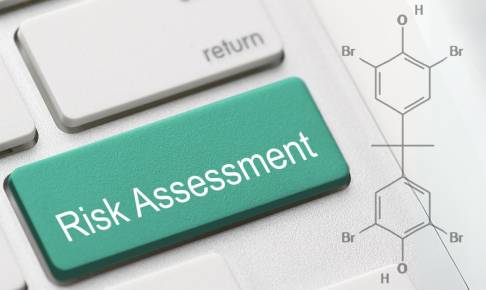EFSA assesses the risk of nitrosamines in food
The European Food Safety Authority (EFSA) has just published its scientific opinion on the risks to public health related to the presence of N‐nitrosamines (N‐NAs) in food. The opinion evaluates the toxicity of N-NAs to animals and humans, estimates the dietary exposure of the European Union (EU) population to N-NAs and assesses the human health risks to the EU population due to the estimated dietary exposure.
N-NAs are chemical compounds that originate from the reaction between nitrosating agents (e.g. nitrites, nitrogen oxides) and amino-based substances (e.g. secondary amines). N-NAs can form in food as a result of food preparation and processing. They have been found in several types of foodstuffs such as cured meat products, processed fish, cocoa, beer and other alcoholic beverages.
For its risk assessment, the EFSA Panel on Contaminants in the Food Chain (CONTAM Panel) investigated 32 N-NAs and characterized the hazards for all of them. However, as the actual presence of quantifiable amounts in food was demonstrated for a limited number of these compounds, the CONTAM Panel limited the risk assessment to 10 N-NAs occurring in food (TCNAs) and concluded that they are genotoxic and potentially carcinogenic to humans.
In details, the analytical results were obtained from the EFSA occurrence data set and the scientific literature.
Occurrence data were available for five food categories: ‘Alcoholic beverages’, ‘Coffee, cocoa, tea and infusions’, ‘Fish, seafood, amphibians, reptiles and invertebrates’, ‘Meat and meat products’ and ‘Seasoning, sauces and condiments’.
Dietary exposure was assessed for two scenarios, excluding and including (respectively, scenario 1 and scenario 2) cooked unprocessed meat and fish.
TCNAs exposure ranged from 0 to 208.9 ng/kg bw per day across surveys, age groups and scenarios.
‘Meat and meat products’ appeared to be the main food category contributing to TCNA exposure.
Dr. Dieter Schrenk, Chair of the CONTAM Panel, said: “Our assessment concludes that for all age groups across the EU population, the level of exposure to nitrosamines in food raises a health concern”. “Based on animal studies, we considered the incidence of liver tumours in rodents as the most critical health effect”, he added. Dr. Schrenk explained that, to ensure a high level of consumer protection, the Panel considered a worst-case scenario for its risk assessment, assuming that all nitrosamines found in food had the same potential to cause cancer in humans as the most harmful once (although that is unlikely).
Now, the EFSA’s opinion will be shared with the European Commission, which will discuss with the Member States what measures must be applied to manage the risk.
Sources:
https://www.efsa.europa.eu/en/news/nitrosamines-food-raise-health-concern
https://efsa.onlinelibrary.wiley.com/doi/10.2903/j.efsa.2023.7884






















